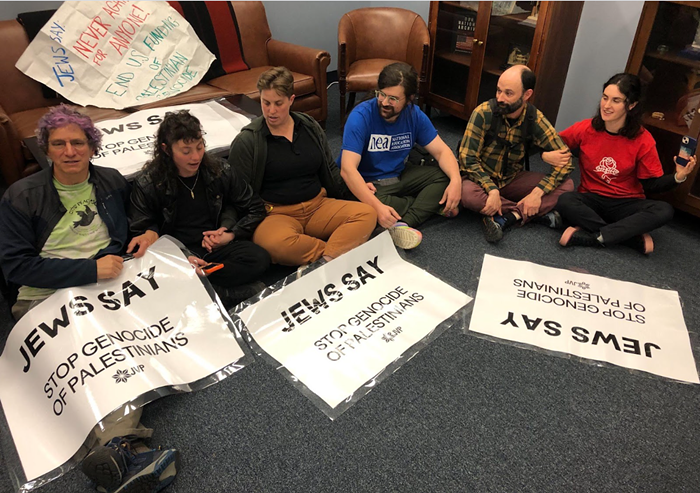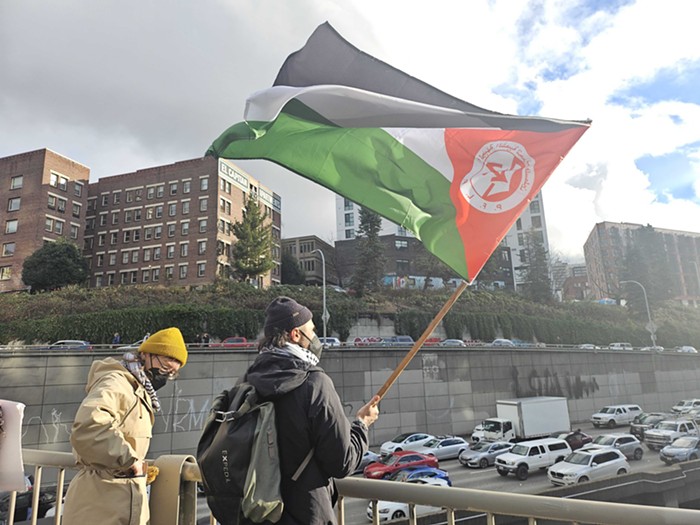When Donald Trump got elected in 2016, I sank into despair. But then a friend shared with me a nugget of wisdom from the great Reverend Desmond Tutu: “Fear makes us lie down, and hope makes us stand up.” Those words moved me to stand up and volunteer for the Democratic Party to advocate for candidates across the nation. That advocacy led to Democratic wins in Congress, the election of President Joe Biden, and, as a result, real progress on the economy and climate change in the form of the Inflation Reduction Act and the Bipartisan Infrastructure Investment and Jobs Act. Those are the successes of a politics based in hope.
Today, Donald Trump is certain to win the Republican nomination, and I find myself called upon yet again to lean into a politics of hope. As an Iranian-American, I understand the waves of fear going through our nation because I know I will be on the front lines of those impacted by his hateful views. Religious or not, the Muslim ban applied to my family, and I know these are the issues we will face again. I certainly will not be supporting Trump.
At the same time, I see a Democratic electorate furious with President Biden, specifically because of his response to the humanitarian crisis in Gaza.
Like so many, I was horrified by the White House’s 100-day statement, which didn’t even mention Palestinians, the three UN vetoes against ceasefire resolutions, and Biden going around Congress twice to send arms and funds to Israel. No nod toward the vast majority of Democrats who want a ceasefire? February polling from Data for Progress showed that 77% of Democratic voters support a ceasefire, and 67% of all voters do. Is this how democracy is meant to work? Am I to quietly support these actions and call that hope, simply because I am afraid of Trump?
No.
We have marched, we have called our representatives, we have confronted them in public, and we have made our views loudly known. Now is not the time to lie down in fear. Organizers, rooted in a politics of hope, have highlighted a path in Washington State that makes our views even more loudly known: We can vote for “Uncommitted Delegates” in the Democratic Party primary.
Without a change in tone and policy, Biden risks becoming a one-term president simply because he couldn’t be responsive to the overwhelming demands of the American people. As a 2023 candidate for Seattle City Council, hearing from voters was incredibly important to me, and I recognized that nobody owed me their vote. I knocked on thousands of doors and learned about the issues important to people in my district and how they wanted to be represented. The Uncommitted Delegates movement is giving Biden an opportunity to hear directly from voters so that he knows the work he must do to earn their votes across the nation. A dock that will take weeks to months to build as children and babies have already starved to death is not a sufficient enough change in policy, and neither is insufficient aid dropping from the sky that has killed five children by landing on them. We need a long-term, sustained ceasefire now, and we must stop sending arms and money to Israel to help make it happen.
As someone who works on democracy reform, specifically on ranked-choice voting, I am disappointed to see people shaming their fellow voters for coming out in support of the uncommitted option, especially after historically low voter turnout last year. Instead of yelling at people about Trump’s threat to democracy, we should be celebrating and encouraging their participation in our democratic process, applauding them for expressing their views via their votes, and putting pressure on President Biden to better reflect those views.
For my part, I believe that voting “Uncommitted Delegates” is an effective way to ask Biden to listen to the majority of the American people who want a ceasefire and to potentially save his Presidency in the process. I invite others like me to lean into the belief that war is not the path to peace. We have the right to demand change, and we risk losing our democracy if we let that go. I know I refuse to lie down in fear, and I hope you will join me in hoping for a better tomorrow by voting “Uncommitted Delegates” in the upcoming Democratic Primary.
Nilu Jenks is an Iranian-American former Seattle City Council candidate who lives in the Lake City area of Seattle with her husband and two children.



















